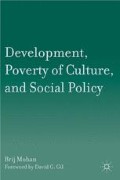Abstract
“But then China and India both began to fall apart at just the time that Europe began to rise,” Kristof observes. “China’s per-capita income was actually lower, adjusted for inflation, in the 1950s than it had been at the end of the Song Dynasty in the 1270s… Now the world is reverting to its normal state—a powerful Asia—and we will have to adjust. Just as many Americans know their red wines and easily distinguish a Manet from a Monet, our children will become connoisseurs of pu-er tea and will know the difference between guanxi and Guangxi, the Qin and the Qing. When angry, they may even insult each other as ‘turtle’s eggs’ ” (2008).
The world we are familiar with, dominated by America and Europe is a historical anomaly. Until the 1400s, the largest economies in the world were China and India, and forecasters then might have assumed that they would be the ones to colonize the Americas—meaning that by all rights this newspaper should be printed in Chinese or perhaps Hindi.
Nicholas D. Kristof (2008)
“The First National Asian and Pacific Islanders Social Work Education Conference in conjunction with the 54th Annual Program Meeting of Council on Social Work Education Sunday, November 2, 2008. Also published as “The fall and rise of the ThirdWorld,” Journal of Comparative Social Welfare, 2009, 25, 1: 71–78.
Access this chapter
Tax calculation will be finalised at checkout
Purchases are for personal use only
Preview
Unable to display preview. Download preview PDF.
References
Bacevich, Andrew J. 2008. The Limits of Power: The End of American Exceptionalism. New York: Metropolitan Books.
Brzezinski, Z. 2008. Staring down the Russians. Time, and August 25: 26.
DeVoss, David. 2008. Macau hits the Jackpot. Smithsonian, September: 86–94.
Diamond, Jared. 2005. How Societies Choose to Fail or Survive. New York: Penguin.
Fisk, Robert. 2008. The Age of the Warrior. New York: Nation Books.
Friedman, George. 2008. Georgia and the balance of power. The New York Review of Books, September 25, LV, 14: 24–26.
Heck, Gene W. 2008. The Eclipse of the American Century. Lanham, MD: Rowman & Littlefield Publishing Group.
Kristof, Nicholas D. 2008. China’s rise goes beyond gold medals. The New York Times, http://www.nytimes.com/2008/08/21/opinion/21kristof.html?th&emc=th (retrieved August 20).
Mason, David S. 2008. The End of American Century. Lanham, MD: Rowman & Littlefield.
Moghadom, Assaf. 2008. The Globalization of Martyrdom: Al Qaeda, Salafi Jihad, and the Diffusion of Suicide Attacks. Baltimore, MD: The Johns Hopkins University Press.
Mohan, B. 2007. Fallacies of Development: The Crises of Human and Social Development. New Delhi: Atlantic.
Power, S. 2008. A question of honor. Time, August 25: 22.
Sarila, Narendra Singh. 2006. The Shadow of the Great Game: The Untold Story of India’s Partition. New York: Carroll and Graf Publishers.
Sutter, Robert G. 2008. The United States in Asia. Lanham, MD: Rowman & Littlefield Publishing Group.
Zakaria, F. 2008. The Post-American World. New York: W.W. Norton.
Copyright information
© 2011 Brij Mohan
About this chapter
Cite this chapter
Mohan, B. (2011). End of the Third World. In: Development, Poverty of Culture, and Social Policy. Palgrave Macmillan, New York. https://doi.org/10.1057/9780230117655_5
Download citation
DOI: https://doi.org/10.1057/9780230117655_5
Publisher Name: Palgrave Macmillan, New York
Print ISBN: 978-1-349-29265-3
Online ISBN: 978-0-230-11765-5
eBook Packages: Palgrave Political & Intern. Studies CollectionPolitical Science and International Studies (R0)

